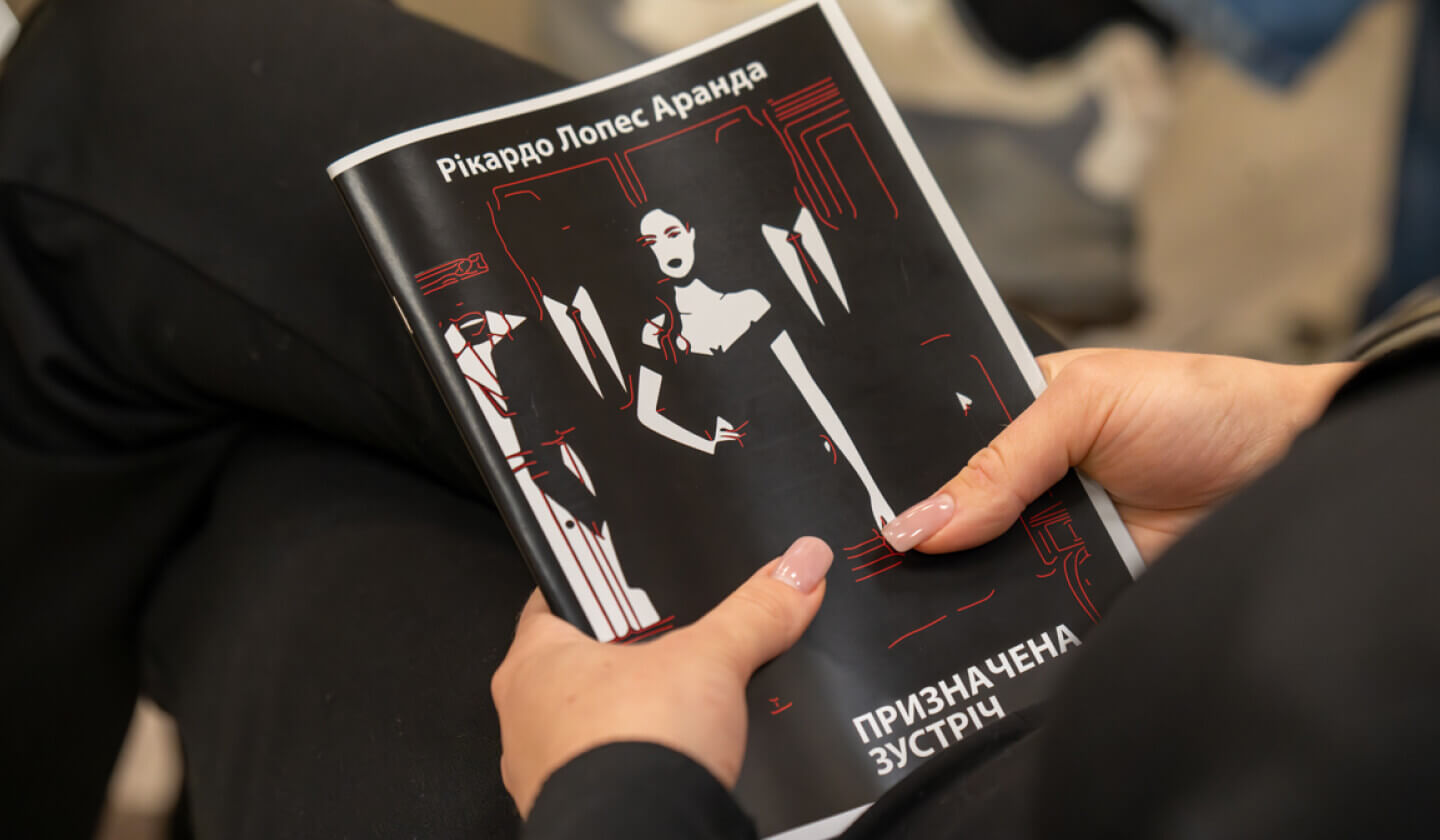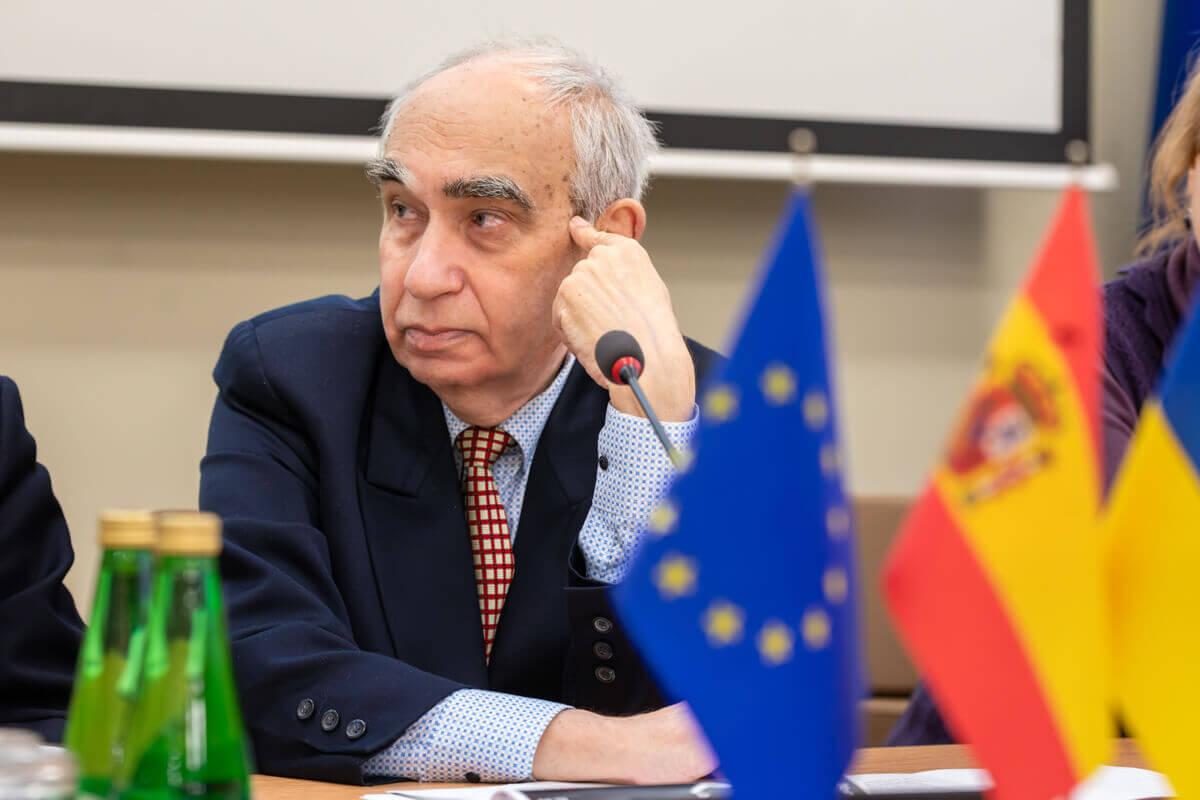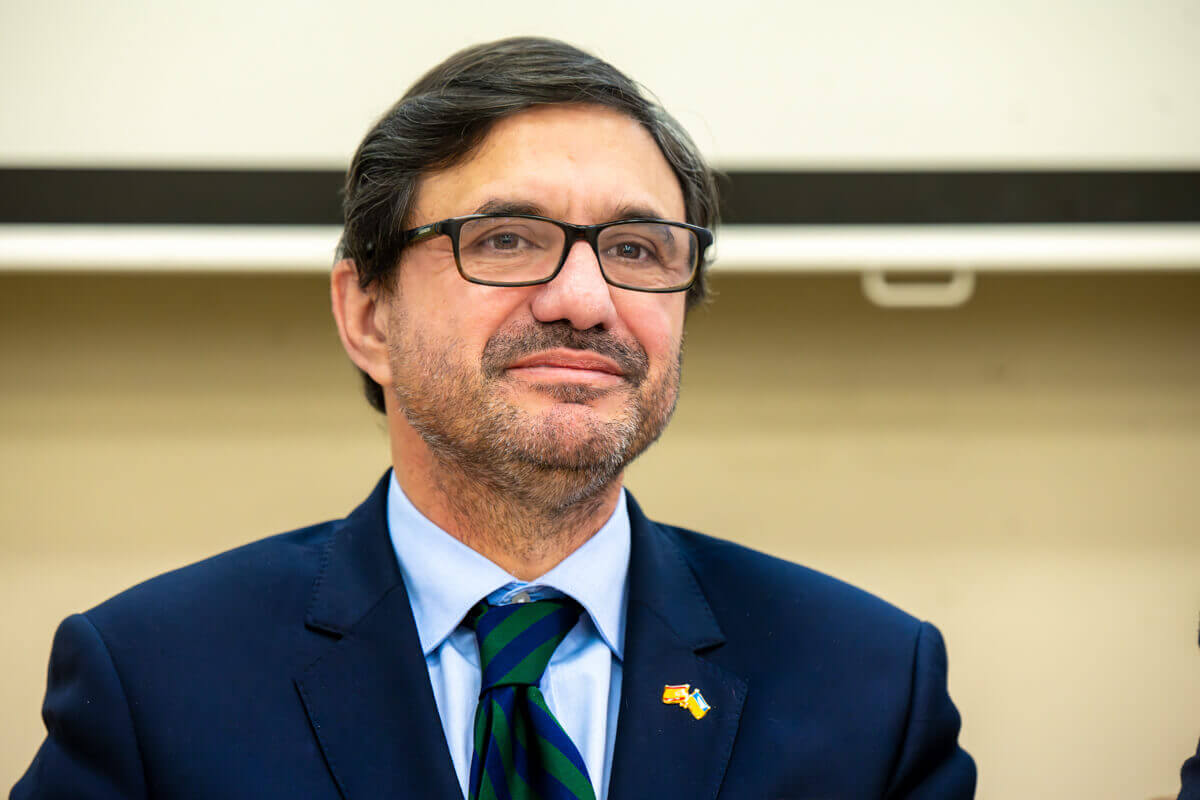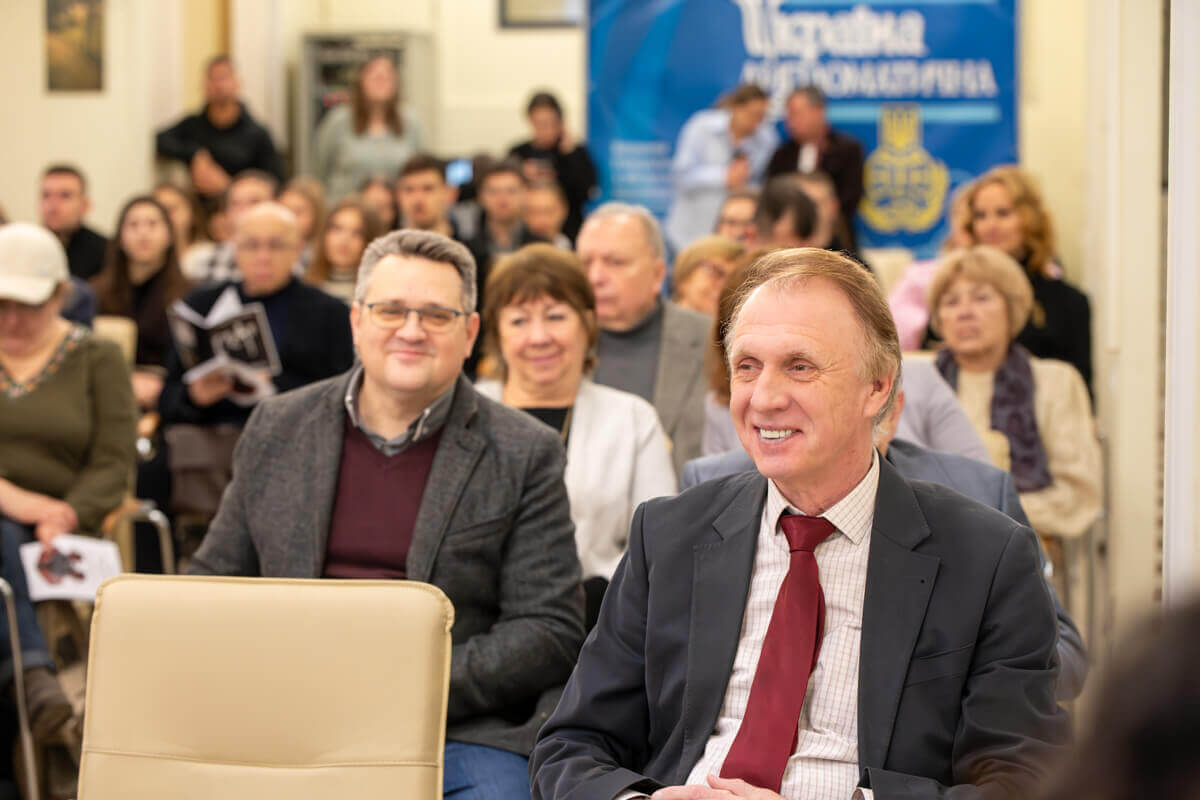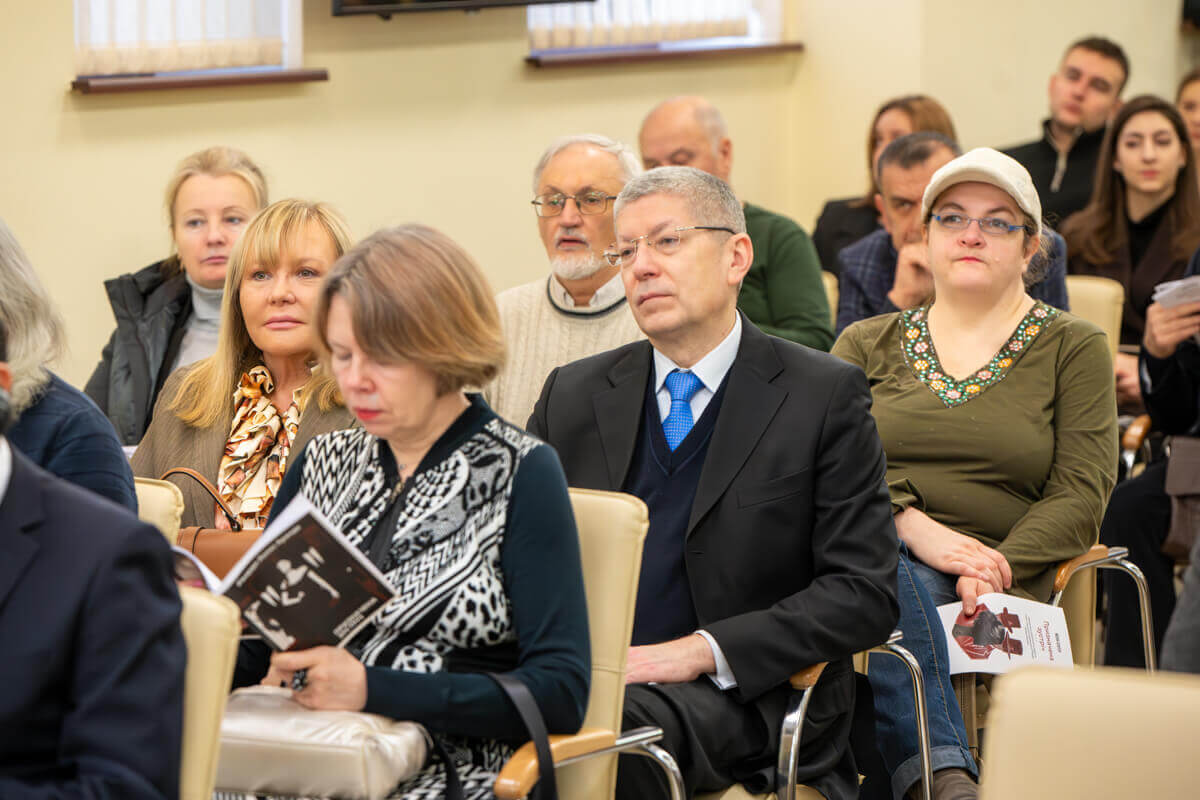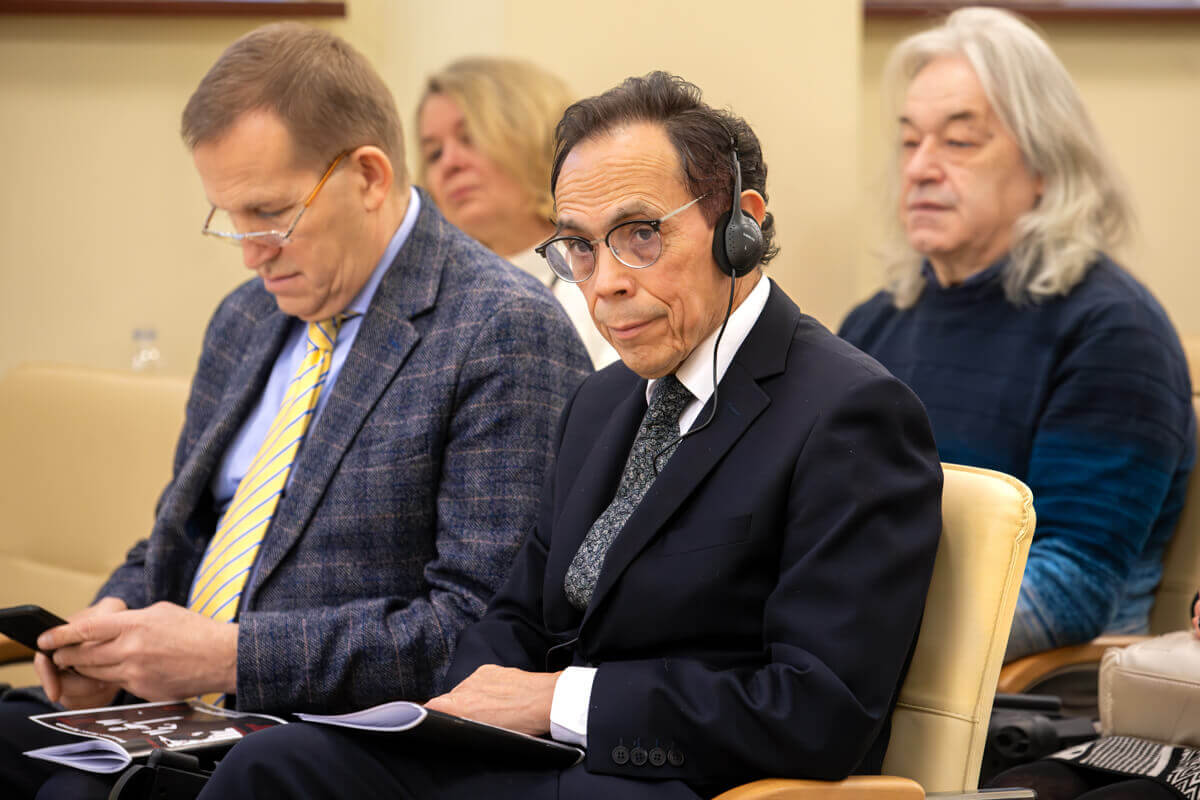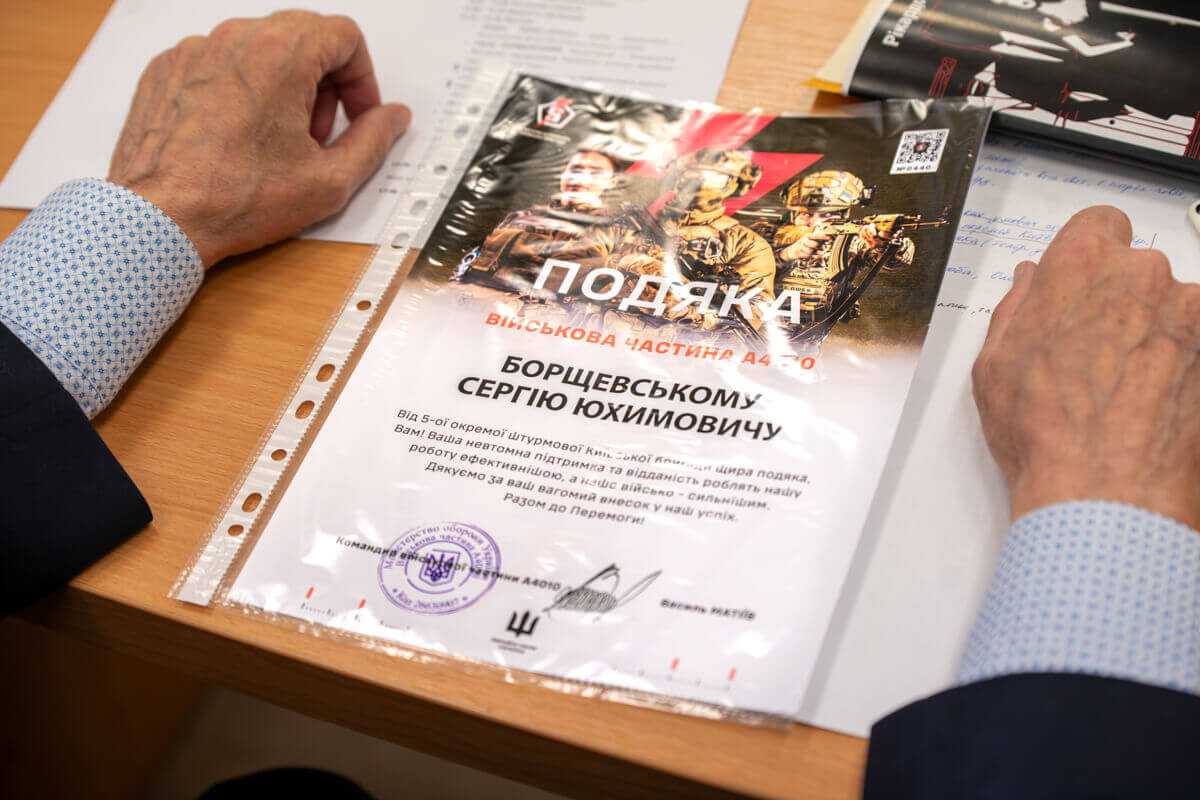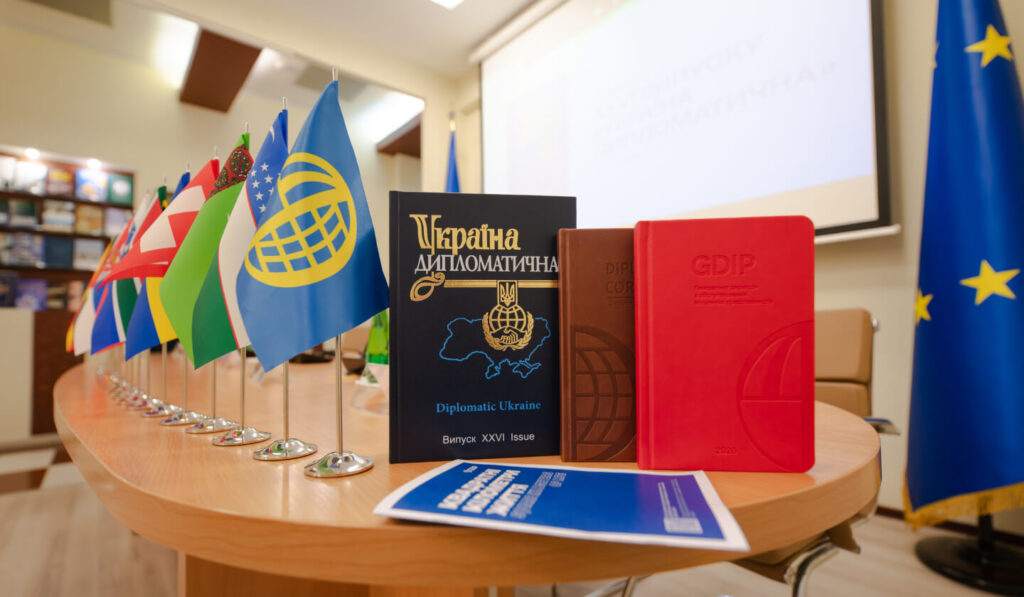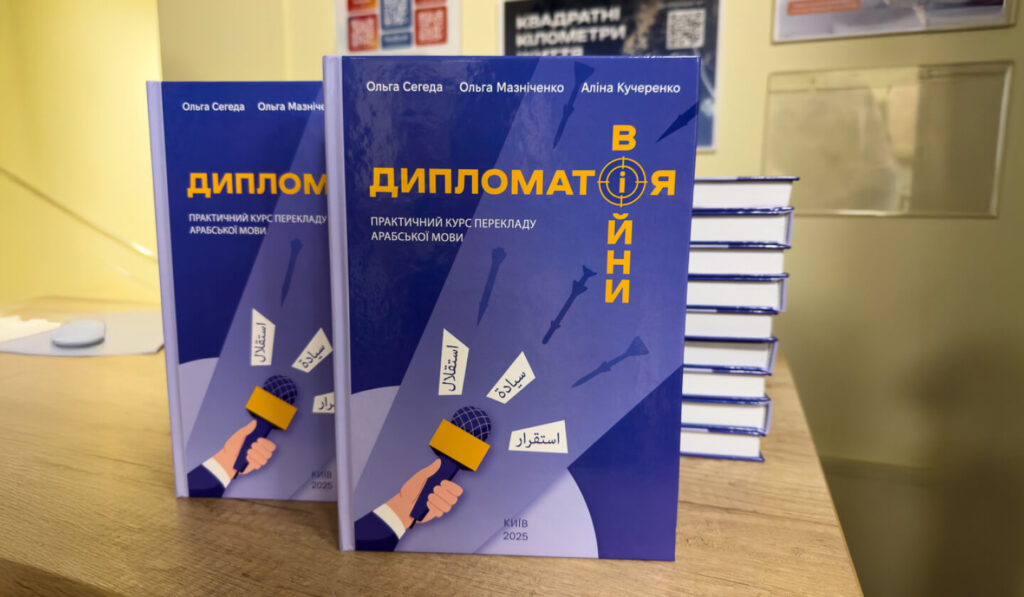On Friday, 7 February 2025, the Media Center of the State Enterprise ‘Directorate-General for Rendering Services to Diplomatic Missions’ hosted a presentation of the Ukrainian edition of the play An Appointed Meeting by Spanish playwright, film and television screenwriter, poet and novelist Ricardo López Aranda.
The Ukrainian-language edition was published owing to the translation provided by the Envoy Extraordinary and Plenipotentiary Serhii Borshchevskyi and the GDIP publishing activities.
Among the participants of the event were foreign and Ukrainian diplomats, government officials, theatre experts and students.
Ricardo López Aranda is one of the most prominent representatives of the generation of playwrights that emerged in the mid-twentieth century and was largely guided by his prominent predecessors and contemporaries, the well-known in Ukraine Antonio Buero Vallejo and Alfonso Sastre. It was a milieu whose worldview and work were shaped by the Civil War and the Second World War and developed for almost two decades under General Franco.
Serhii Borshchevskyi, presentation moderator and author of the play’s translation, opened the event with a welcoming speech and thanked the co-organisers and the Armed Forces of Ukraine for the opportunity to present the play’s text to Ukrainian readers. Mr Borshchevskyi described the figure of the Spanish playwright, the story of the play’s translation, the events that preceded his acquaintance with the author’s works, and why he chose this particular play for translation:
‘I am happy that I have the honour to open this piece for the Ukrainian reader and, perhaps, in the future for the audience as well. An Appointed Meeting may interest directors and be performed on the stage of many Ukrainian theatres. After getting acquainted with the author’s work, I enjoyed all of his plays, but I chose this one for translation because it has only one action and three characters. Therefore, in our circumstances of war in Ukraine, it is the easiest to stage. It is not a typical play for the author because it is an example of ‘cruel drama’ that differs from other author’s works. The text also has features of the theatre of the absurd. When you translate, associations always appear, and the context of this work resembles the realities of Ukraine, even though the play was created in 1960. But we must understand that Spain had not yet fully recovered from the wars at that time. One of the images of this play is a monster. And this image is reminiscent of the russian federation, which, like a monster, wants to swallow the whole world into its abyss.’
During the presentation, the guests received copies of the Ukrainian-language play, and thus had the opportunity to read the text personally.
In their speeches and welcoming remarks, the honoured guests of the Media Center highlighted the uniqueness of the Ukrainian translation of An Appointed Meeting, its style, interesting contexts and relevance of the plot, and analogies with Ukraine’s present-day life: Hanna Sherman, theatre expert and editor-in-chief of Ukrainian Theatre magazine; Stanislav Lazebnyk, Envoy Extraordinary and Plenipotentiary, member of the National Union of Journalists of Ukraine; Serhii Dziuba, screenwriter, member of the National Union of Cinematographers of Ukraine, second sergeant of the 5th Independent Assault Kyiv Brigade of the Armed Forces of Ukraine; Olena O’Lear, poet, translator, literary scholar; Anabell Ramires, co-founder of the Compass publishing house, head of programmes for Cooperation with Asian, African, and Latin American countries at the Ukrainian Institute.
The honorary guest of the presentation was Ambassador Extraordinary and Plenipotentiary of the Kingdom of Spain to Ukraine Ricardo López-Aranda Jagu, who, as the son of the play’s author, granted the translator permission to create a Ukrainian-language edition. In his welcoming remarks, the Ambassador thanked the guests of the presentation, who proved their interest in Spanish culture by their presence, and explained the background of the play:
‘Culture is a way of resistance. This unjust war imposed on Ukraine, on the other hand, shows how we, Europeans, share your struggles and how close we really are. And it is through culture, its deep language, that our solidarity and sympathy for your people is manifested. The language of culture is a universal language spoken by everyone. Cultural diplomacy is the pinnacle of our cooperation, solidarity and brotherhood existing between European countries and Ukraine. As an embassy, we will continue to provide opportunities for such deep interaction. As for the play An Appointed Meeting, it was created at a time when Spain was under military dictatorship, and that’s why we see a grey shadow covering the characters in the play. This play also has a core motif that is common to my father’s other works that there is always a choice, either to submit or to resist. Considering the time when the play was written, one can understand the pessimism and cruelty of the situation in society back then. The play is set against the backdrop of a war, and this is what connects the work with our present. The ending of the play is very sad, but Ukraine represents the second choice, which is to resist. And in Ukraine, unlike the play, there is hope.’
During the event, Serhii Dziuba, on behalf of the 5th Separate Kyiv Assault Brigade of the Armed Forces of Ukraine, expressed gratitude to Serhii Borshchevskyi for the unit’s continued support and significant personal contribution. For his part, Stanislav Lazebnyk presented the Ambassador with a memorable gift — a 1997 Ukrainian-Spanish dictionary.
At the end of the presentation, Serhii Borshchevskyi thanked everyone involved in implementing the Ukrainian-language edition and wished the play a speedy introduction to the Ukrainian audience and an easy start to its stage life in Ukraine. In case the play is staged in Ukrainian theatres, the royalties for the translation will go to the needs of the 5th Separate Kyiv Assault Brigade of the Armed Forces of Ukraine.
The event was followed by an informal conversation, during which everyone shared their impressions of the play and its interpretation in the Ukrainian language version.
